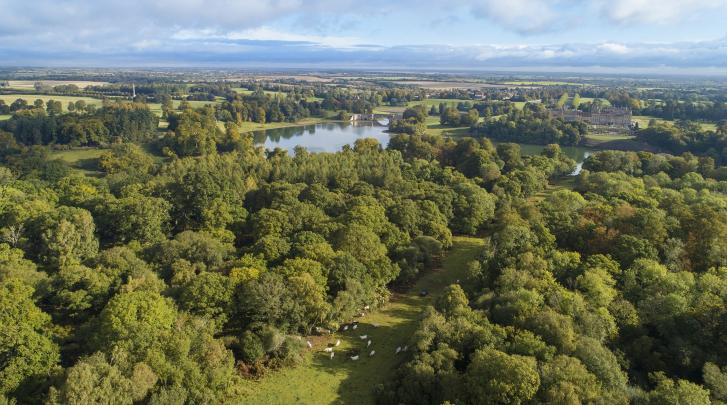
Blenheim’s rural team has completed planting the first of nine new woodlands on the Oxfordshire estate.
Hordley Wood is made up of nearly 12,000 trees and features 25 separate species. Among the saplings planted were a number of oaks propagated from acorns gathered from the estate’s ancient High Park.
Later this year, a new forest school will be created in the ‘flagship’ wood to provide a learning hub for schools and the local community.
The new woodlands, which will eventually consist of more than 270,000 trees and cover a total of 138 hectares, are part of Blenheim’s ongoing commitment to becoming the UK’s first estate to demonstrate carbon-positive land management.
The project is being undertaken in collaboration with Morgan Sindall, which is helping fund, design and create the woodlands, and Cotswolds-based forestry company, Nicholsons.
Among the team involved in the planting was Blenheim forester Rob Burgess who, eight years ago, created a nursery of acorns and oak saplings gathered on the estate.
He hand harvests the acorns from the ancient woodland known as High Park every year and propagates them. In total approximately 5,000 oak trees propagated from High Park will eventually be planted across all nine of the new woodlands.
Rob said: “Creating woodlands that will hopefully be here for centuries to come and appreciated by our children, grandchildren and great grandchildren for generations to come is a fantastic project to be involved with.
“Hordley Wood is the first of the new woodlands to have been completed and will form the base for our forest school. It will also feature new public footpaths and provide an amazing new resource for local communities to explore and enjoy."
Blenheim’s rural team is working with Nicholsons to create the new woodland areas, put up signage, waymarkers and fencing. All the trees are being fitted with biodegradable tree guards to minimise use of plastics.
Nathan Fall of Nicholsons said: “For people to be able to get out of their built environment and be able to go and walk through woodlands that have got permissive access throughout them on this sort of scale in the English lowlands is virtually unprecedented."
The scheme is part of Blenheim Estate’s wider commitment to developing its ‘natural capital’.
Natural Capital is a radical new model, which assigns importance to precious resources, like good air, water, soil, woodland, green spaces and biodiversity, in order to promote the best long-term decisions.




